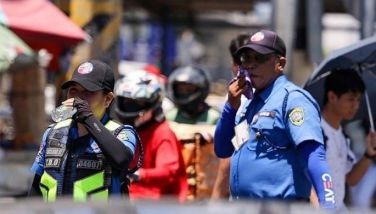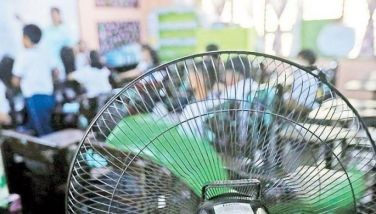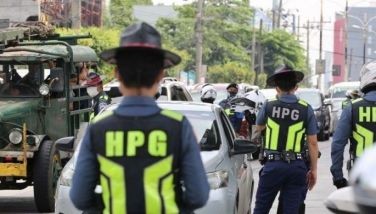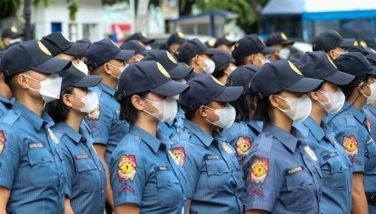‘Noy, Abe did not discuss collective defense’
MANILA, Philippines - President Aquino and Prime Minister Shinzo Abe did not talk about collective self-defense when they met in Tokyo last week, Malacañang said yesterday.
Speaking to reporters, presidential spokesman Edwin Lacierda said the two leaders only discussed how the Philippines approaches the situation in the South China Sea.
“President Aquino mentioned the three-tiered approach of the Philippines: the immediate, intermediate and the final approaches... It spells out how the Philippines...(is) resorting to international mechanisms,” he said. “At the same time, Japan also mentioned the importance of the rule of law. So both parties, both countries, agree on the primacy of the rule of law in promoting peace and stability in the South China Sea.”
Malacañang renewed its support for Japan’s move to reinterpret its Constitution to make it more attuned to current global security situations.
Abe announced a major revision of Japan’s pacifist postwar defense policy Tuesday.
Under the new policy, Japan’s military will be allowed to defend friends and allies under attack for the first time, even overseas.
It is part of a new interpretation of Japan’s Constitution that Abe has pushed since taking office 18 months ago.
Lacierda said any Asian country promoting regional peace and stability would support Japan’s move to revisit its Constitution.
“I think everyone who has a stake in regional stability would certainly support any action that would move towards promoting peace in the region,” he said. “Clearly, our belief is that Japan, by revisiting its Constitution, enables it to meet its international obligations, that is – in the case of the South China Sea issue – to promote and to ensure peace and stability in the region.”
Both the Philippines and Japan have territorial rows with China. ?During his meeting with Abe, Aquino said he was supporting the idea of Japan revisiting its Constitution to fulfill its international obligations more effectively.
The Philippines was looking at forging a stronger military cooperation with Japan, similar to the Enhanced Defense Cooperation Agreement (EDCA) with the US, he added.
The ban on exercising collective self-defense or aiding a friendly country under attack has kept Japan’s military from fighting abroad since 1945 after its defeat in World War II.
It is a dramatic policy shift, which will allow Japan’s armed forces to be more aligned with the militaries of other advanced nations in terms of its options.
In a statement, the Department of Foreign Affairs (DFA) said the Philippines backs Japan’s reinterpretation of its Constitution to allow a partial lifting of the ban on the right to collective self-defense.
Speaking to reporters, DFA spokesman Charles Jose said it is a “step in the right direction.”
“The Japanese government has recognized the need for the international community to address such challenges and the effort to clarify the constitutional basis for Japan’s role in this area is a step in the right direction,” he said.
“We are confident that Japan will continue to play an important role in addressing our common security challenges.” – With Pia Lee-Brago
- Latest
- Trending
































